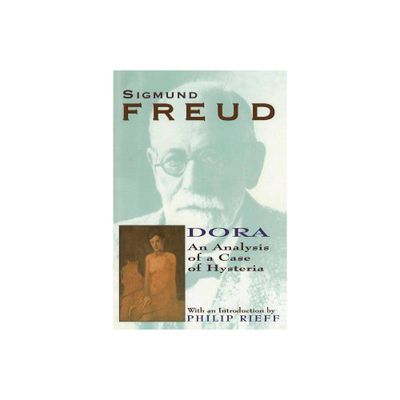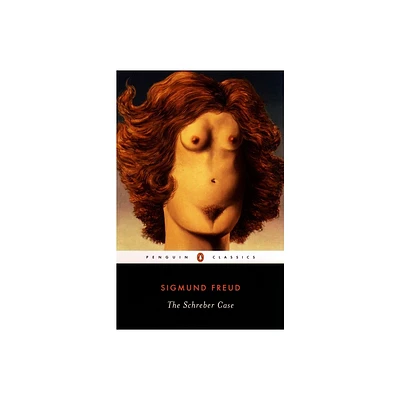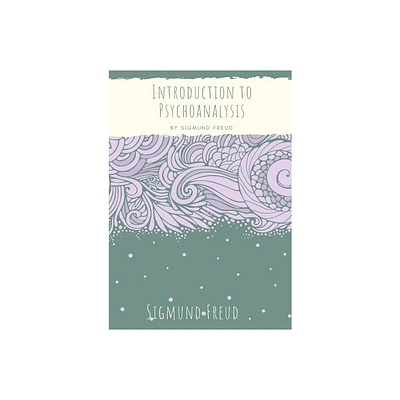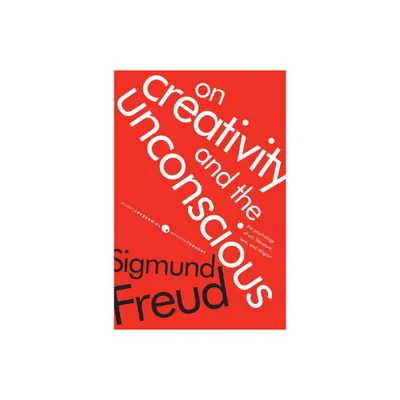Home
Sigmund Freud and his Patient Margarethe Csonka: a Case of Homosexuality Woman Modern Vienna
Loading Inventory...
Barnes and Noble
Sigmund Freud and his Patient Margarethe Csonka: a Case of Homosexuality Woman Modern Vienna
Current price: $180.00


Barnes and Noble
Sigmund Freud and his Patient Margarethe Csonka: a Case of Homosexuality Woman Modern Vienna
Current price: $180.00
Loading Inventory...
Size: Hardcover
*Product Information may vary - to confirm product availability, pricing, and additional information please contact Barnes and Noble
Winner of the Radomír Luža Prize, German Studies Association and The American Friends of the Documentation Center of Austrian Resistance, 2024
Chosen for the
George L. Mosse Annual Lecture
in the History of Gender and Sexuality,
2024
This book provides a historical analysis of one of Sigmund Freud’s least-studied cases, published in 1920 as
The Psychogenesis of a Case of Homosexuality in a Woman.
Scholars of sexuality often focus on Freud’s writings on male homosexuality, disregarding his views on homosexual women. This book serves as a corrective, renewing and reinvigorating interest in Freud, and demonstrating that his views on sexuality are as relevant today as ever. Part I introduces the case and explores Freud’s attitudes towards lesbianism, radical among his medical colleagues in the early twentieth century. It also puts Margarethe Csonka, the patient, at its centre. Michal Shapira considers Freud’s only treatment of a "female homosexual" and assesses Csonka’s background life before and after the encounter. Part II expands the case beyond the scientific-medical purview of the times and looks at the new opportunities afforded to women and assimilated Jews through growing equality and the modernization of urban life in 1920s Vienna.
This book places Csonka’s case within the broader context of medical and psychological texts, Freud’s own writings, Jewish and queer history, and modern Vienna’s urban and art history.
Sigmund Freud and his Patient Margarethe Csonka
will be of great interest to psychoanalysts in practice and in training, and to readers interested in the history of gender and sexuality, feminism, modern European and urban history, the history of psychoanalysis, science and medicine, and the history of ideas.
Chosen for the
George L. Mosse Annual Lecture
in the History of Gender and Sexuality,
2024
This book provides a historical analysis of one of Sigmund Freud’s least-studied cases, published in 1920 as
The Psychogenesis of a Case of Homosexuality in a Woman.
Scholars of sexuality often focus on Freud’s writings on male homosexuality, disregarding his views on homosexual women. This book serves as a corrective, renewing and reinvigorating interest in Freud, and demonstrating that his views on sexuality are as relevant today as ever. Part I introduces the case and explores Freud’s attitudes towards lesbianism, radical among his medical colleagues in the early twentieth century. It also puts Margarethe Csonka, the patient, at its centre. Michal Shapira considers Freud’s only treatment of a "female homosexual" and assesses Csonka’s background life before and after the encounter. Part II expands the case beyond the scientific-medical purview of the times and looks at the new opportunities afforded to women and assimilated Jews through growing equality and the modernization of urban life in 1920s Vienna.
This book places Csonka’s case within the broader context of medical and psychological texts, Freud’s own writings, Jewish and queer history, and modern Vienna’s urban and art history.
Sigmund Freud and his Patient Margarethe Csonka
will be of great interest to psychoanalysts in practice and in training, and to readers interested in the history of gender and sexuality, feminism, modern European and urban history, the history of psychoanalysis, science and medicine, and the history of ideas.

















